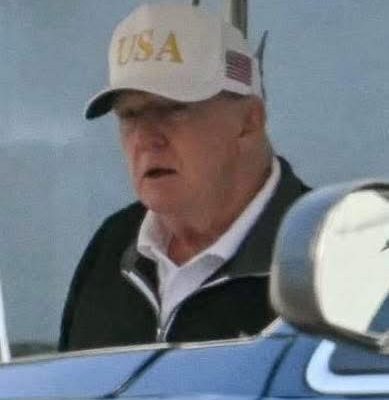On Thursday, former U.S. President Donald J. Trump was formally charged in a federal case that accuses him of criminal conduct tied to efforts to overturn the results of the 2020 presidential election. The indictment outlines four felony counts: conspiracy to defraud the United States, conspiracy to obstruct an official proceeding, obstruction and attempted obstruction of an official proceeding, and conspiracy to violate constitutionally protected rights. These charges mark one of the most significant legal challenges faced by any American president in history.
The Charges Explained
The first charge, conspiracy to defraud the United States, alleges that Trump and his allies knowingly spread false claims of widespread election fraud to disrupt the lawful process of certifying the 2020 results. Prosecutors argue that this misinformation campaign was not simply political rhetoric but part of a deliberate effort to undermine public trust in the election system.
The second and third counts—conspiracy to obstruct an official proceeding and obstruction of and attempt to obstruct an official proceeding—relate directly to the events of January 6, 2021. On that day, Congress gathered to certify Joe Biden’s Electoral College victory, a proceeding that was violently interrupted when rioters stormed the U.S. Capitol. The indictment claims Trump’s pressure on state officials, his attempts to influence Congress, and his encouragement of supporters all contributed to disrupting this vital constitutional process.
The fourth count, conspiracy against rights, accuses Trump of attempting to interfere with the right of American citizens to have their votes counted and recognized. Federal prosecutors are framing this as not only a political dispute but also a direct assault on one of the most fundamental rights in a democracy—the right to vote.
Historical Significance
The indictment is groundbreaking because it is rare for any president, past or present, to face criminal charges tied to the core functioning of American democracy. Legal scholars note that this case goes beyond financial or personal misconduct. It directly addresses a president’s actions in relation to constitutional duties and the peaceful transfer of power.
Previous scandals in American history, such as Watergate, raised questions about presidential overreach and abuse of power. But this case, prosecutors argue, is different: it strikes at the foundation of democratic governance by targeting the electoral process itself.
Trump’s Response
Donald Trump pleaded not guilty to all charges. He has repeatedly dismissed the case as a politically motivated “witch hunt” orchestrated by his opponents to damage his chances in the 2024 presidential election. On his social media platform, Trump has accused prosecutors of attempting to criminalize free speech, arguing that questioning election outcomes is a protected right.
His legal team is expected to mount a defense centered on First Amendment protections and claims that his actions were within the bounds of political discourse. They also argue that the prosecution is selectively targeting Trump for political reasons while ignoring other politicians who have raised objections to election results in the past.
The Role of the January 6 Capitol Attack
Central to the indictment is the violent attack on the U.S. Capitol by Trump supporters on January 6, 2021. Prosecutors allege that Trump’s repeated false claims of election fraud and his pressure on officials to alter results created the conditions that fueled the riot.
While the charges do not accuse Trump of personally leading the attack, they frame his words and actions as part of a broader conspiracy that led to the disruption of Congress. By focusing on his intent and the consequences of his rhetoric, prosecutors aim to establish that Trump’s behavior directly undermined lawful government functions.
The Broader Legal Landscape
This case is just one of several legal battles facing Trump. At the state level, he is also dealing with investigations into efforts to overturn results in Georgia, business fraud cases in New York, and other inquiries. Collectively, these cases represent an unprecedented legal storm surrounding a former president who remains a central figure in American politics.
The federal election obstruction indictment, however, is particularly significant because of its constitutional implications. It forces the courts to address whether a president can be held criminally accountable for actions that threaten the peaceful transfer of power.
Implications for American Democracy
The case carries enormous weight for the future of democratic norms in the United States. If prosecutors succeed, it would send a powerful message that no leader, not even a president, is above the law. It would also set a precedent for how the justice system handles attempts to subvert elections in the future.
If Trump is acquitted, however, it could embolden political figures to challenge the legitimacy of elections without fear of legal consequences. Critics warn this might normalize dangerous tactics that erode trust in the democratic process.
Political Ramifications
The indictment also has immediate political consequences. Trump remains the frontrunner for the Republican nomination in the 2024 presidential election. His legal troubles, rather than diminishing his influence, have energized a core segment of his supporters who see him as a victim of political persecution.
At the same time, the charges deepen divisions within the Republican Party. Some leaders argue that nominating a candidate under multiple indictments risks alienating independent voters. Others insist that the prosecutions prove the establishment is desperate to stop Trump’s political comeback.
The Path Ahead
The legal process is expected to be lengthy, with pre-trial motions, appeals, and potential delays stretching into the 2024 campaign season. This means the charges could hang over Trump’s campaign, shaping media coverage and voter perceptions in real time.
Ultimately, a jury will decide whether the evidence proves beyond a reasonable doubt that Trump conspired to defraud the United States, obstruct official proceedings, and violate citizens’ rights. The verdict, whichever way it falls, will have consequences far beyond the courtroom.
Conclusion
Donald Trump’s federal indictment over the 2020 election represents one of the most consequential legal and political moments in modern American history. The four charges—conspiracy to defraud the United States, conspiracy to obstruct an official proceeding, obstruction of and attempt to obstruct an official proceeding, and conspiracy against rights—strike at the heart of the democratic system.
Whether seen as a politically motivated attack or a necessary defense of constitutional order, the case underscores a truth that will define the coming years: the health of American democracy depends on accountability. For Trump, the outcome will shape not only his legacy but also the future of presidential power in the United States.



